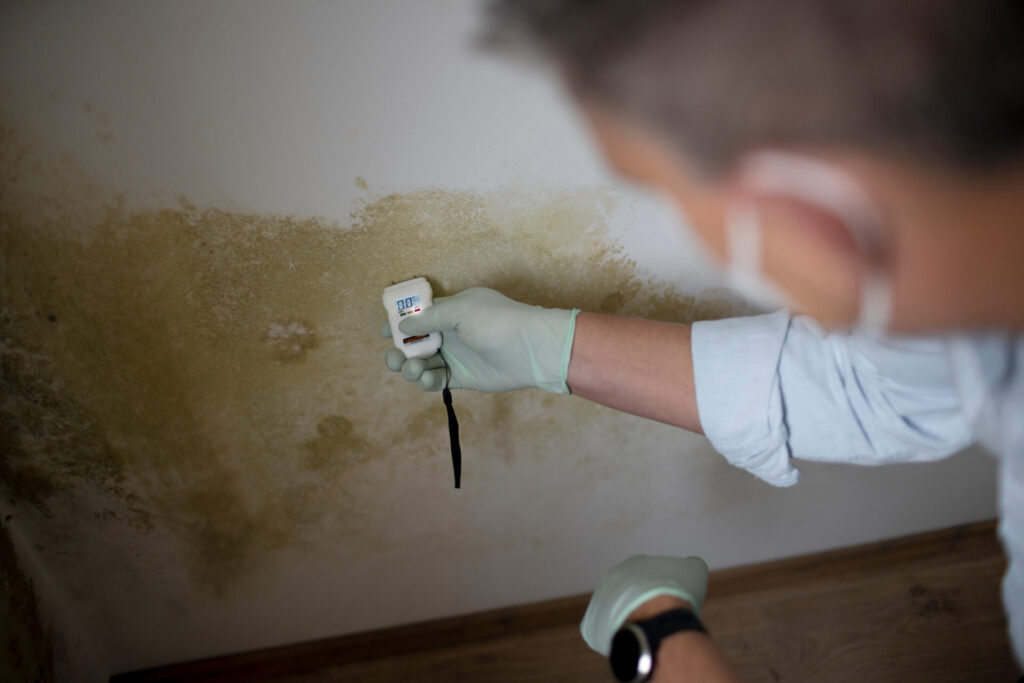If you rent an apartment, house, or other dwelling in Pennsylvania, you either have or should have renter’s insurance. Your personal belongings, including your furnishings, clothes, housewares, and other items, aren’t covered by your landlord’s property insurance in the event of most types of disasters, including flooding.
The interplay, however, between your landlord’s insurance and your renter’s insurance is complex, and the responsibility for covering a particular incident can change based on a number of factors. What’s covered under each policy is also widely different.
This month, we’ll look at the different ways renter’s insurance can help you recover from flooding in your rented home as we answer the question: does renter’s insurance cover water damage in Pennsylvania?
Renter’s Insurance vs. Property Insurance for Water Damage
Generally speaking, a rental property is covered concurrently by two separate insurance policies:
- The property owner (landlord) typically carries a property insurance policy, similar to a homeowner’s policy without the personal property coverage. This policy covers damage to the actual property—the building, including appliances, utilities, fixtures, etc.
- The renter or tenant should carry a renter’s policy that covers the renter’s possessions.
There are some exceptions to the above – in cases involving negligence, the liability clauses of both types of policy can kick in. In those cases, a renter’s policy may pay to repair damages to the real property, or the landlord’s policy may be responsible for paying for a tenant’s possessions.
What Types of Water Damage Are Covered by a Renter’s Policy?
Your renter’s policy will usually cover damages to your personal property caused by the following incidents, so long as the incident is not the result of negligence:
- A burst pipe
- Rain entering the property from a leaky roof
- Roof leaks caused by snow or ice dams
- Sewage and toilet backups
Note that in Pennsylvania, insurers will typically only allow these claims if the water damage occurs suddenly and unexpectedly. What does that mean? You usually won’t be able to recover losses caused by a pipe that’s been slowly leaking for years or a roof leak that’s been staining the unit’s ceiling for months. These types of damages are considered “normal wear and tear.”
In all of the above cases, the insurance payments will only cover the cost of repairing or replacing your personal possessions. The landlord’s property policy should cover any damage to the house, apartment, or other property.

What if the Water Damage Is Your Fault?
Your renter’s policy will also typically kick in if the rental property is damaged due to your negligence. If you leave a window open during a rainstorm, drill into a pipe, or otherwise cause a flood through some negligent or irresponsible act, your policy’s liability clause will come into effect. In these cases, your insurer will be responsible for repairing the damage to the building caused by your actions. If the damage is your fault, your insurer may also deny or reduce compensation for your personal items.
What Types of Water Damage Aren’t Covered by a Renter’s Policy?
Renter’s policies cover many common types of flooding, but there are a few exceptions:
- Damage from normal wear and tear
- Damage from an external sewer line
- Damage from a natural or artificial flood
That last exception warrants some additional explanation. Typically, damage from a flood, such as a river flooding or severe rain event, is covered by a separate, special flood insurance policy. Particularly if you’re renting a property that is located within a flood hazard zone, you should discuss flood insurance with your landlord and insurance company and determine how to proceed with protecting your belongings from a flood.
What if the Water Damage Is My Landlord’s Fault?
In some cases, the damage to the tenant’s property could have been avoided if the landlord had taken measures to prevent it. Failure to maintain a roof system, not addressing recurring plumbing issues, or inadequately sealing the exterior of the property could all be considered negligence on the part of the landlord.
In those cases, you may not need to make a claim to your renter’s policy. If the damage to your personal possessions is the result of negligence on the part of your landlord, their property policy’s liability clause may come into effect, and their insurer, not yours, will make payment for your loss.
If a Flood Has Caused Water Damage in Your Rental Property, Contact AfterCare Restoration Right Away to Begin Mitigation and Restoration. We Know the Ins and Outs of Property and Renter’s Insurance: 215.515.1000
Related Articles:
AfterCare Restoration is a Local Family- and Veteran-Owned damage restoration company. We specialize in 24/7 water damage restoration, fire board-up, fire damage restoration, smoke damage restoration, and complete reconstruction services.
At AfterCare, we use the latest technology, arrive in marked vehicles and professional uniforms, and stand 100% behind our work. This is why at AfterCare, we consistently receive 5-star reviews from customers who choose AfterCare for water damage cleanup and fire and smoke damage restoration.
RESIDENTIAL AND COMMERCIAL WATER & FIRE DAMAGE RESTORATION SERVICES AVAILABLE:
- Allentown, PA
- Ambler, PA
- Audubon, PA
- Blue Bell, PA
- Breinigsville, PA
- Collegeville, PA
- Chalfont, PA
- Coopersburg, PA
- Doylestown, PA
- East Greenville, PA
- Fort Washington, PA
- Harleysville, PA
- Hatfield, PA
- King Of Prussia, PA
- Lansdale, PA
- Macungie, PA
- New Hope, PA
- Newtown, PA
- North Wales, PA
- Pennsburg, PA
- Perkasie, PA
- Red Hill, PA
- Plymouth Meeting, PA
- Quakertown, PA
- Schwenksville, PA
- Skippack, PA
- Souderton, PA
- Telford, PA
- Trexlertown, PA
- Warminster, PA
- Wayne, PA
- Willow Grove, PA
